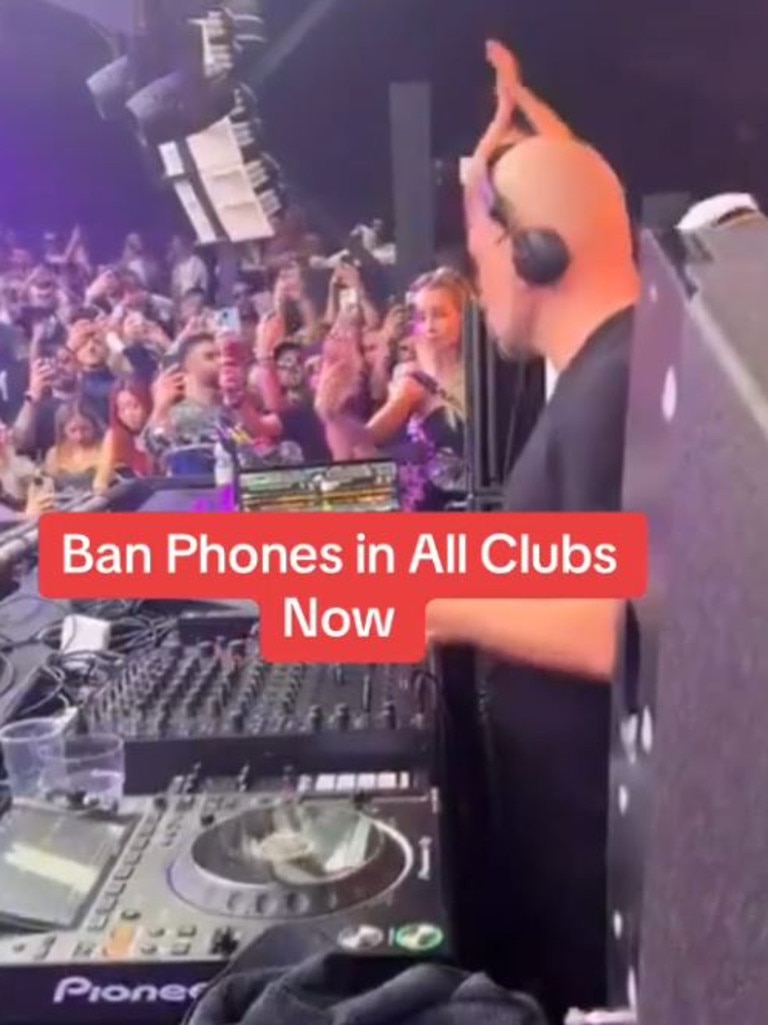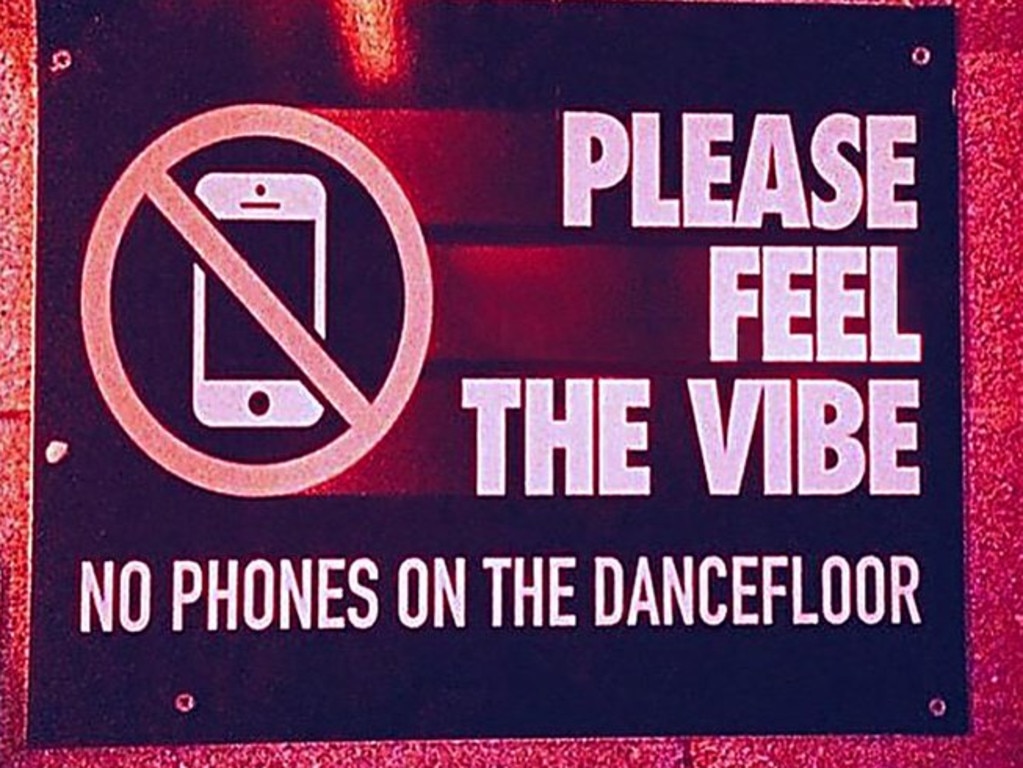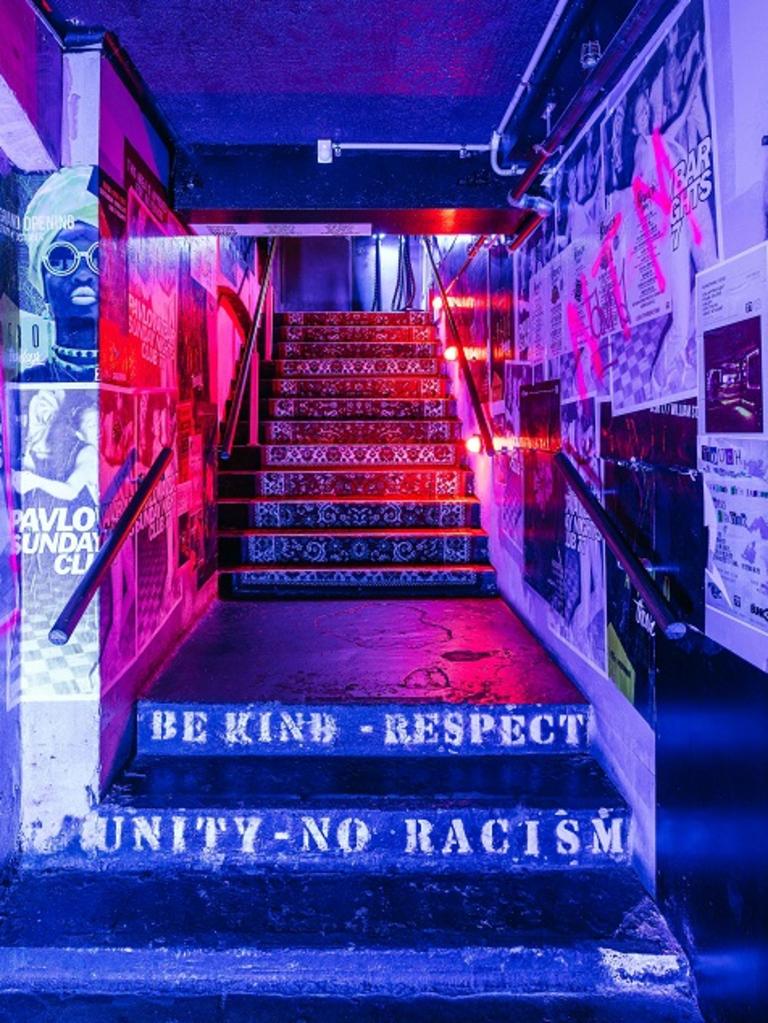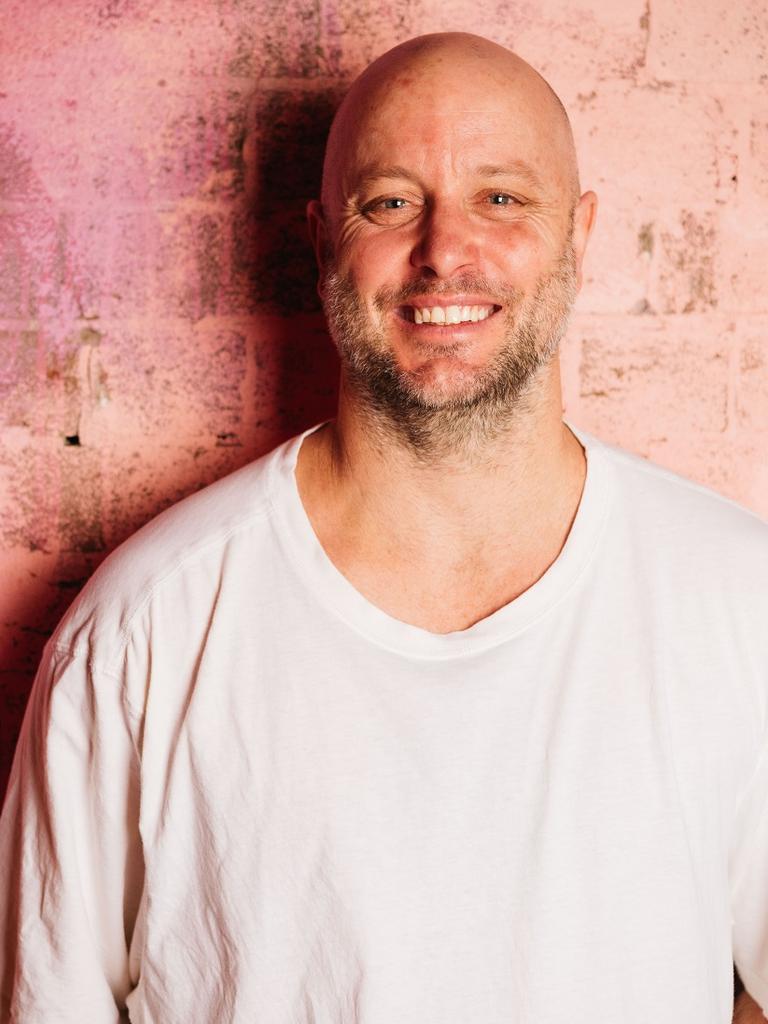Millennials are furious that Gen Z have ‘killed’ the art of clubbing
A teenage “rite of passage” is disappearing, experts are warning – and Millennials are furious it is being “forgotten”.

Gen Z’s addiction to their phones is killing the art of clubbing, with experts stating modern tech is destroying the beloved Millennial “rite of passage”.
The number of Australian nightclubs reduced from 482 to 355 in recent years, according to IBISWorld.
While the pandemic contributed in the decline of nightclub popularity, research shows there are a multitude of factors at play, including a slump in alcohol consumption among younger demographics and soaring cost of living pressures.
But industry experts state phones are one of the biggest reasons clubbing has completely changed.
“Clubbing is a much different beast these days, it was more wild back in the days, these days not so much,” Ben Nott, a professional DJ who is about to open Sydney’s newest restaurant meets club lounge, told news.com.au.
“Phones are a real hindrance as Gen Z like to record a lot, but you can’t watch a show through a screen all night.
“Younger clubbers, and people in general thesedays, tend to have a much shorter attention span, which also makes it harder for people putting on club nights.”

Millennials, who couldn’t wait to come of age at 18 to dance the night away in a sweaty room with complete strangers, have also declared the cult-weekend activity is “dying”.
Christina Najjar, a popular influencer known as Tinx, recently shared her “concerns” on the topic on the Trash Tuesday Podcast – prompting hordes of fellow 30-somethings to weigh in on the debate.
“I am very concerned about the future of my culture which is clubbing,” she said in a clip, posted on TikTok.
“I’m gonna write some letters to authorities soon.
“This is a dying art, they’re [Gen Z] are forgetting this craft, and how to do it.
“The young girls don’t even know how to dance on a table in a heel.”


Dane Gorrel, director at Sydney’s Club 77, weighed in on this, noting it’s not just night-life that phones have changed forever.
“I think phones and social media in general are killing a lot of experiences, not just in nightclubs,” he told news.com.au.
“For me going to a nightclub has always been about listening to forward-thinking electronic music and connecting with like minded individuals, it’s about becoming a part of that community.
“Phones definitely take away from that experience and this is something that needs to change.”


Many agree with this, remarking mobile phones are the notable difference between the two generations in an array of posts on social media.
“2000’s clubbing was an art. No cell phone in sight, maybe a disposable camera, and the hope of no finger on the flash,” one said on TikTok.
“Mobile phones killed the fun, dance floors are a joke now, you can’t be free without someone catching it on camera,” another raged.
Someone else chipped in: “Just stop holding phones up on the dancefloor, it’s infuriating.”
It’s a sentiment shared by another TikTok video that went viral recently, which showed a DJ surrounded by young people who were all recording his set on their smart devices.
“This is why I think phones should be banned in all clubs,” Simon Doherty, who posted the clip, states.
“The sea of people who are all just filming on their phones, they don’t even move when the tune drops.
“No expression, no dancing, no losing yourself. Just filming.”


Some nightclubs have already started listening to these common complaints, with a popular venue on the party island of Ibiza recently introducing a “no phones on the dancefloor policy”.
“From open to close we take pride in creating a totally unique environment, centred around the mystical Temple, it’s a proper session where we lose our inhibitions and can enjoy a sense of freedom as we enforce our groundbreaking ‘No Phones’ policy inside the room,” Hï Ibiza said in a statement last week.


Mr Nott, whose new venue Lucky Cat Dumpling Bar & Lounge will open on Sydney’s Oxford Street in a matter of weeks, said while phones were a catalyst, the global lockdown couldn’t be ignored.
“Covid changed things. People’s habits about going out shifted, a lot of the older crowds didn’t come back and the younger generation missed out on clubbing at a crucial age,” he told news.com.au.
“Add this to cost of living, plus less work and wage increases and lack of venues / events, its really not a surprise the industry has been forced to adapt.”


Mr Gorrel, whose venue has been running in Darlinghurst for 25 years, agreed, revealing clubs were being re-imagined to suit modern tastes.
“It’s constantly changing and evolving and this is what I think makes nightclubs and music so special,” he told news.com.au.
“There’s always something new on the horizon and that’s really exciting.
“We’re currently experiencing week on week growth and our community is only getting stronger. While offerings are smaller, it doesn’t feel like the night-life scene is on the decline, which is a great thing.”
More Coverage
It seems Millennials aren’t willing to budge on their views, declaring Gen Z – who have previously been described as “generation stay-at-home” – are “missing out”.
“Clubbing back in the day was honestly the best. That’s how most of us met our husbands,” one argued.
As one declared: “Spent my 20s clubbing. It was wild yet utterly glorious.”






